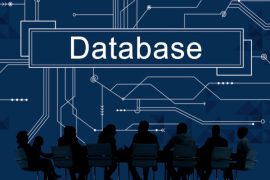“Data migration is the process of moving data from one storage or computer system to another. Learn why data is important and what factors drive the migration of data.”
Why is data important for any organization?
Data is a critical component for every organization. It is the source of information and insights that help organizations make informed decisions and take action. It enables businesses to understand dynamic consumer behavior, identify potential areas where their business can grow, identify trends in their industry and drive effective marketing campaigns to enable them to successfully deliver quality services with limited resources.
Here are some of the benefits of using data:
- Data provides insights into how processes are currently working. It can be used to identify opportunities for improvement and suggest ways forward.
- It helps you to understand what works well, what doesn’t work at all, and why it doesn’t work so well. This knowledge is crucial while preparing strategy and planning activities.
- It can also help identify areas where you need new processes or procedures, as well as how best to use existing ones.
- Additionally, it helps in managing people, money, and assets more effectively by providing real-time feedback on performance levels.
Why do they need data to be systematic?
Data is the lifeblood of any organization. It gives information to various stakeholders to enable them to make informed decisions and take action. Users of the data are different, which necessitates the data to be systematic to fulfill the purpose of every user.
What are the needs of different stakeholders? Let us understand ⇒
Application Developers: Developers require data to develop, design, and maintain the functional codes to run the application or websites.
Business Analysts: They require useful insights from the data to make informed and calculative decisions.
Database Developers: The database contains schemas, codes, and continuous data transactions that necessitate them and provide them with automated database code testing, analysis, and validation within existing tools for continuous integration and delivery.
What is data migration?

Data migration is the process of transferring data from one storage location to another or between other data formats and applications. This is an extensive process that involves the preparation, extraction, and transformation of data into a new device or format.
The goal of data migration is to move information from one source to another, whether that source is on-premises (internal or external) or in the cloud (public or private).
Generally, the requirement for data migration arises for the following reasons:
- For up-gradation of legacy software and its replacement.
- Upgrade or update existing software or hardware.
- To migrate to a cloud-based solution.
- Where consolidation of data is required due to expansion activities like mergers and acquisitions.
- To integrate the isolated data by moving it to a centralized database
Why is Data Migration Important?
There are various reasons why you should consider migrating your database:
- Data migration introduces flexibility in your business by providing the agility to transfer the data among the different platforms and applications as per the latest technology.
- If you need to take advantage of new features in your current database but are not supported by your current vendor, you can migrate the data from your current database and then implement them in the new database.
- Older technologies add cost to the company. Here, migrating the data can help as it saves time and money by reducing the need for hiring more staff members whose job will be solely to migrate data from one system to another.
- It can also be done to upgrade or enhance your existing database, software, or hardware. It can also be used as a solution for security issues in your business.
Data migration to the cloud

Today, organizations are moving some or all of their data to the cloud to reap the benefits of cost optimization, improve scalability, and provide the best IT environment for their organizations. Migrating data to the cloud helps organizations eliminate the need to deploy and maintain server farms on-premises.
There are several ways that can be adopted to transfer the data to the cloud. Depending on the needs of the business, they can choose either online or offline migration.
- Online migration: moving the data to the internet, or private or dedicated servers.
- Offline migration: data is physically transferred to the target cloud location.
Keeping in mind the size of data, security requirements, and types of workloads involved, select the right option with the expertise of TecoreLabs and accelerate the cloud data migration projects.
Challenges associated with data migration
Data migration often appears simple, but its execution carries various challenges that make this process complex, risky, and time-consuming. Some of the challenges associated with it are as follows:
- Inadequate planning and analysis pose the threat of erroneous data migration, whose outcome can be seen in the form of exceeding the budget and timelines of the project.
- Sometimes, large volumes of data make it more difficult to migrate the data and have an impact on the quality of the data.
- Data gravity creates another big challenge in the phase of data migration. It attracts the data of other applications or systems. As a result, it becomes difficult to segregate the data at the time of migration.
- Also, when some applications are running on unique data structures, extensive data develops isolated data formats known as “data silos.”
- A lack of experienced technical professionals to deal with the complexities can lead to errors and generate unnecessary costs for the company.
- Adherence to all the compliance-related requirements on data security and storage related to the industry poses another challenge during data migration.
Data migration with TecoreLabs
Data migration is a very big and challenging task that requires expertise to mitigate the risks associated with it. Its complexity demands that it must be done systematically right from the planning to overcome the hurdles and smoothen the whole process.
So, if you are looking for seamless and smooth data migration for your organization, connect with TecoreLabs. By deploying the methodology that suits your business requirements, we streamline your journey with the cloud by providing you with secured, reliable, and cost-effective data migration and cloud solutions.
Get started with us today!





